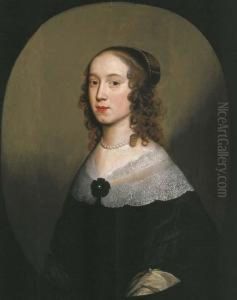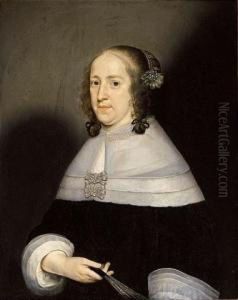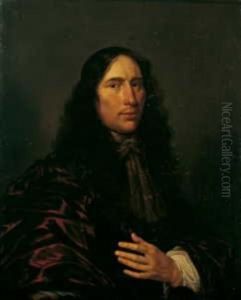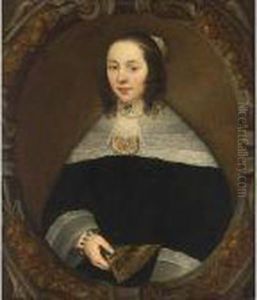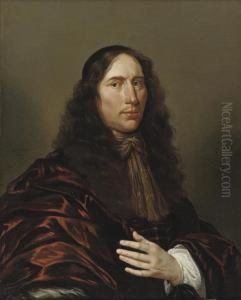Jan Jansz Westerbaen Paintings
Jan Jansz Westerbaen was a Dutch poet and physician born on March 30, 1599, in The Hague, Netherlands. He was part of the Dutch Golden Age, a period of great wealth and cultural achievement for the Dutch Republic. Westerbaen was not only a prominent figure in Dutch literature but also practiced medicine after studying at the University of Leiden.
After completing his education, Westerbaen set up a medical practice and began to write poetry. He was influenced by the work of the classical poets as well as his contemporaries. His poetry ranged from lyrical to satirical, and he is known for his sharp wit and use of classical references. He also wrote geuzenliederen, which are Dutch political songs that were part of the resistance to Spanish rule.
Beyond his poetry, Westerbaen is also remembered for his estate, Ockenburgh, located near The Hague. He purchased the land in 1630 and subsequently constructed a country house there, which became a center of literary and intellectual activity. Westerbaen wrote many poems about Ockenburgh, which reflect his deep affection for the estate and his interest in horticulture.
Westerbaen remained a bachelor throughout his life, which allowed him a level of social freedom and independence that he celebrated in his writings. His works include 'Ockenburgh', his ode to his estate, and 'Westgeuzen', a compilation of his political songs and satires. He died on April 1, 1670, in The Hague. Although not as widely known today as some of his contemporaries, Westerbaen's contributions to Dutch literature have been recognized by scholars, and he holds a place in the rich tapestry of the Dutch Golden Age.

